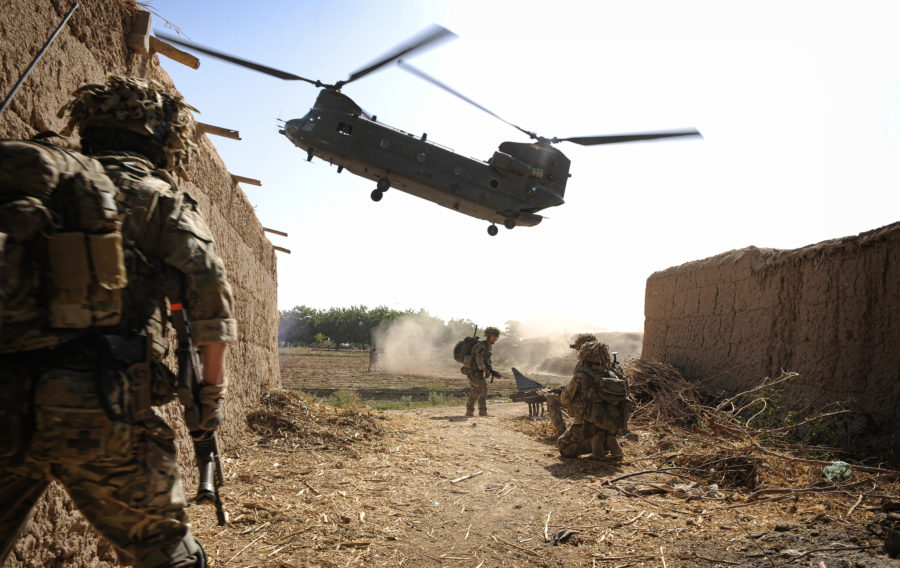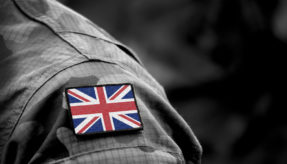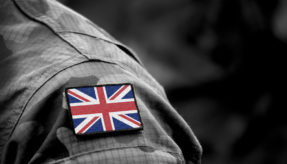
Not all injuries on the battlefield are visible to the eye. The psychological impact of military service can be just as difficult to recover from as physical injuries.
Two in every three of the UK population are likely to remain free of mental illness in their lifetime; however, many will, at some stage, experience symptoms of poor mental wellbeing.
While rates of mental disorder are slightly lower in the Armed Forces (3.2%) than in the general population (3.5%), the challenge of improving the mental health of the Ministry of Defence’s entire workforce is an important one.
In July 2017, the MOD launched its Defence People Mental Health and Wellbeing Strategy – a five-year plan focusing on preventative measures to protect the Armed Forces, their families, veterans and defence civilians.
The report was a result of five years of research and aims to build a coordinated approach to prevent, detect and treat mental health and wellbeing issues, as well as introduce measures to promote the importance of mental health.
The strategy states its ambition for “All defence people to enjoy a state of positive physical and mental health and wellbeing, feeling connected with, and supported by, the military and wider community, enabling them to contribute to the delivery of defence outputs, including operational capability, as part of the whole force.”
As part of efforts to deliver on this, Defence Secretary Gavin Williamson has pledged an extra £2 million a year for the next ten years to improve mental health services in the Armed Forces on top of the £20 million per year that is currently committed. The additional money, which brings the total planned spending to £220 million over the next decade, will be put towards an increase in mental health specialists and bolstering existing provision.
The pledge made in February was accompanied by the launch of a new military mental health helpline to provide accessible gateway to mental health services for Service personnel and their families.
Combat Stress – the leading veterans mental health charity – has been commissioned to run the helpline service for serving troops 24 hours a day.
The MOD will provide additional funds to enhance Combat Stress’ existing service, predominantly aimed at veterans, and is working to develop information-sharing processes with the military to ensure any serving personnel in crisis are provided with the appropriate support tailored for their needs.
Chief Executive of Combat Stress, Sue Freeth, outlined the dangers of delaying seeking treatment or repressing mental health issues, urging those struggling to reach out. She explained: “A significant minority of Service men and women develop mental health conditions, such as anxiety, depression and post-traumatic stress disorder. We know they can delay seeking treatment while in the Armed Forces, with some preferring to come forward for help after they have left the military.
“Left untreated, mental health problems can become more complex and have a devastating impact on those with the condition, as well as their loved ones. It’s vital that people seek help as soon as they notice a change in their mental health.”
The Ministry of Defence marked Mental Health Awareness Week in May with the announcement of a number of new joint projects with leading mental health charity Samaritans.
The schemes, backed by £3.5 million in LIBOR funding, will build on the charity’s digital technology to offer military personnel at home and on operations abroad access to confidential support. Online and face-to-face training in listening skills will also be offered to serving personnel and families, in order to give them confidence and expertise in encouraging others to not suffer in silence.
As part of the partnership with Samaritans, a confidential webchat service is being developed allowing military personnel, who often live in shared living quarters, particularly when serving on operations abroad, the ability to talk in confidence with trained staff. Pocket guides are also being produced which will provide information and emotional support for when people are in isolated locations, particularly on operations.
If you would like to join our community and read more articles like this then please click here.







